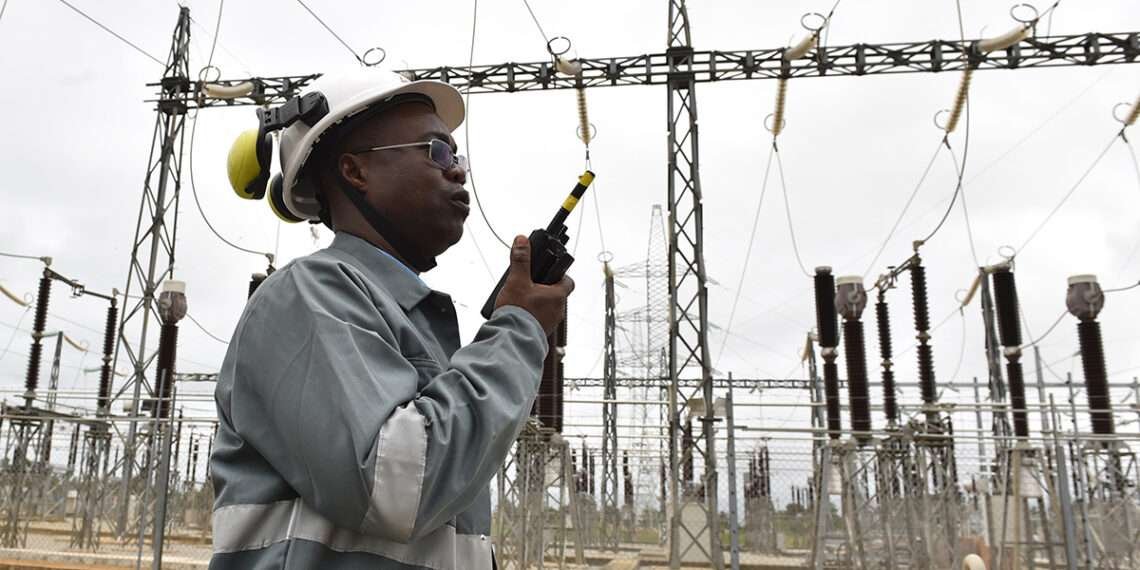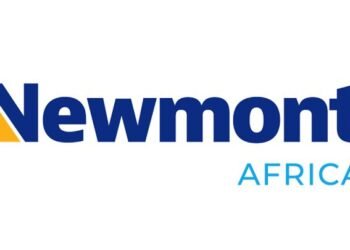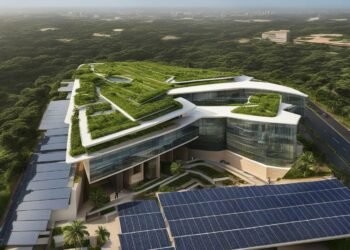At the annual IMANIFesto event hosted by the IMANI Centre for Policy and Education, energy sector challenges took center stage as key political parties in Ghana outlined their policy proposals. Dennis Asare, Senior Research Associate at IMANI, highlighted the urgent issues plaguing the nation’s energy sector.
“The two main things facing the energy sector are that the State-owned utilities are not financially viable, and there’s a high energy sector cost.
“So, the promise of the parties should seek to address the energy sector challenge in terms of the financing.”
Dennis Asare, Senior Research Associate at IMANI
In response to these critical issues, IMANI conducted a comparative analysis of the manifestos from the New Patriotic Party (NPP), the National Democratic Congress (NDC), and the Movement for Change (MFC), scrutinizing their respective promises in the energy sector.
The parties presented ambitious plans aimed at addressing Ghana’s energy crisis; however, Asare noted that the feasibility of these proposals would depend heavily on sustainable financing and regulatory discipline.
NPP’s Vision: Solar Power Expansion and Nuclear Energy

The ruling New Patriotic Party (NPP) has proposed a substantial expansion in renewable energy infrastructure. The NPP aims to introduce a 2,000-megawatt solar power project, which it claims would lower electricity costs.
The party also plan to incentivize solar power users through a net metering system that credits excess solar energy contributed to the national grid. This initiative would allow households and businesses with solar setups to balance grid power consumption when solar power isn’t available.
Another key aspect of the NPP’s proposal is to continue efforts to establish Ghana’s first nuclear power plant, which would support both industrial and residential power demands. Additionally, the party wants to introduce a framework to streamline fuel procurement for power generation, aiming to minimize inefficiencies and reduce costs.
However, Asare pointed out potential limitations in the feasibility of the solar power expansion.
According to him, “If you want to construct a standard solar home system—using high-end technology like lithium batteries—it will cost between 70,000 to 80,000 Ghana cedis for a 3-bedroom house.”
He referenced past projects where solar home systems were deemed impractical due to high costs, with many households unable to afford them.
To make solar expansion viable, Asare suggested reducing import taxes on solar components and allowing the importation of components separately, instead of as bundled systems, to lower overall costs.
NDC’s Proposal: Financial Discipline and the “Light Up Ghana” Initiative
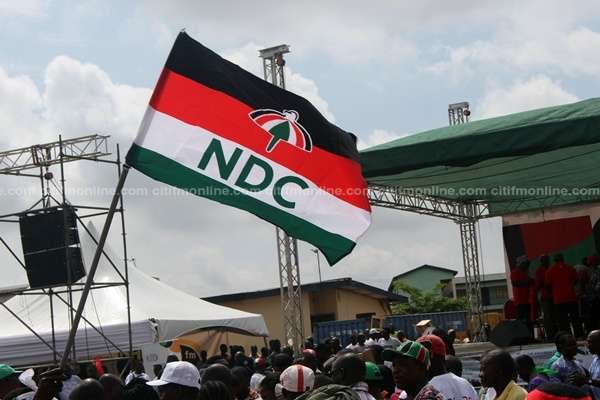
The National Democratic Congress (NDC) has centered its energy proposals around enforcing financial discipline within the sector. One of its cornerstone policies is the rigorous enforcement of the Cash Waterfall Mechanism (CWM), a system designed to ensure fair and timely revenue distribution among electricity sector players.
“Lack of leadership and discipline is why the cash waterfall mechanism is not working. The Electricity Company of Ghana (ECG) has not been complying with this mechanism.”
Dennis Asare, Senior Research Associate at IMANI
Strengthening the CWM, the NDC argues, could improve revenue flows and minimize inefficiencies in the energy supply chain.
The NDC has also proposed the “Light Up Ghana” initiative, aimed at supporting a 24-hour economy by enhancing the country’s public lighting infrastructure.
This ambitious project could be financed through two existing levies: the National Electrification Scheme Levy and the Public Lighting Levy. Over recent years, these funds have generated about 3.2 billion Ghana cedis, which the NDC believes could be allocated to sustain the project.
While the Light Up Ghana initiative aligns with the party’s vision for economic development, Asare emphasized that effective implementation would require strict financial oversight and consistent revenue allocation to ensure sustainable progress.
Movement for Change (MFC): Tackling Power Reliability and Outsourcing ECG Operations
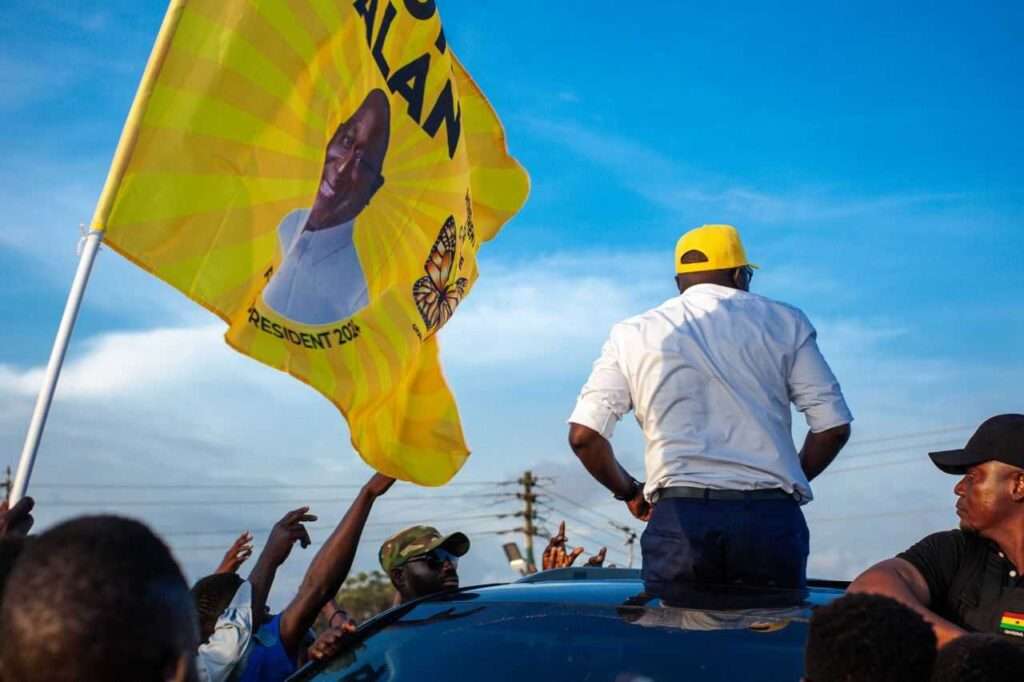
The Movement for Change (MFC), a new political force, has focused on achieving power reliability and restructuring ECG operations. The party has pledged to eliminate “dumsor”—the erratic power outages that have plagued Ghana for years—and aims to achieve consistent power supply within six months.
To achieve this, the MFC plans to outsource the retail and commercial functions of ECG, such as metering, billing, and collections, while retaining core distribution functions under public control. The MFC believes this approach would bring greater efficiency to ECG’s operations and reduce financial losses.
Furthermore, the MFC has pledged to expand investment in Liquified Natural Gas (LNG) infrastructure and extend pipelines across the nation to improve power generation, particularly in regional thermal systems. They have also committed to enforcing the Cash Waterfall Mechanism to enhance accountability and promote efficiency among energy sector players.
Yet, Asare highlighted a fundamental concern: “The challenge with that is there’s a financing problem. Energy sector debt is growing.”
Without a clear solution to Ghana’s ballooning energy sector debt, Asare cautioned that the MFC’s proposals might struggle to yield the desired results, underscoring the need for the party to address financing gaps within the energy sector.
Asare reiterated that Ghana’s energy sector demands more than mere promises—it requires concrete financial restructuring and sustainable policies that address the root causes of inefficiency.
The financial woes of state-owned utilities and the sector’s growing debt have contributed significantly to rising energy costs and operational challenges.
While the NPP, NDC, and MFC all present distinct approaches, Asare emphasized that any viable solution must prioritize financial transparency, accountability, and investment in infrastructure that aligns with the nation’s socio-economic realities.
The IMANIFesto 2024 event highlighted the complex interplay between Ghana’s energy sector issues and the proposed solutions from each party.
As the country approaches the upcoming election, these policy promises offer voters insight into each party’s approach to solving one of Ghana’s most pressing challenges. However, the path to a sustainable energy future will require diligent oversight, financial reforms, and a commitment to making energy both affordable and reliable for all Ghanaians.
READ ALSO: Australia Voices Concerns Over Alleged Sikh Activist Targeting


